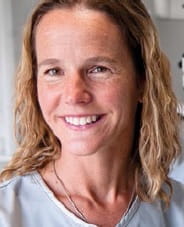THE specialty of oral surgery is a dynamic one that has developed and evolved at a rapid pace in recent years. It has a key role to play in oral healthcare provision, particularly as dentists face growing challenges in treating an ageing population, with increasing numbers of patients retaining teeth later in life.
As the name suggests, oral surgery focuses on surgical interventions to address problems with the jaw and mouth. These range from the extraction of broken and decayed teeth to the removal of non-cancerous lumps and cysts, and the placing of implants. Career paths are broadranging and practitioners can work as specialists, or with a special interest in the field, basing themselves across both primary and secondary care. It has close ties with the specialty of oral and maxillofacial surgery but does not require a medical degree.
Technology has played a big part in advances in oral surgery and clinicians are increasingly able to use minimally invasive techniques. They can now take advantage of state-of-the-art innovations such as 3D cone beam imaging, digital impressions and other specialised computer programs.
Entry and training
Dentists interested in a career as a specialist in oral surgery are expected to have completed two years dental foundation training, or equivalent, with a minimum of two years dental core training in relevant posts. Following this, specialty training lasts three years (whole time equivalent), during the last six months of which dentists must successfully pass the specialty membership exam in oral surgery (M Oral Surg) of the Royal Surgical Colleges of Great Britain. Once they have completed training and passed the exam, they will then be recommended for a certificate of completion of specialist training (CCST).
Trainees working towards a CCST can gain experience in various settings, including a dental teaching hospital with relevant attachments in oral surgery or oral and maxillofacial surgery in district general hospitals, or specialist centres. They may also undertake formal postgraduate training, such as a Masters (MClinDent) in oral surgery offered by the likes of the University of Edinburgh and UCL Eastman Dental Institute, or the MSc/PGDip oral surgery programme offered by the University of Central Lancashire.
Once dentists have been awarded the CCST, they can choose to work as a specialist or pursue a two-year post-CCST development programme. This would also lead to an intercollegiate specialty fellowship examination and from there the dentist can work as an NHS consultant.
Dentists can also pursue an academic training pathway after completion of two years foundation training. This may initially be via an academic clinical fellowship post, followed by research training fellowship (PhD) and subsequent clinical lectureship, before leading back into the three-year core competency specialty training and postdoctoral studies. Ultimately this training can lead to honorary consultant and combined academic (research and teaching) roles.
Dentists who plan to use the title of “oral surgeon” or “specialist” must successfully apply to join the General Dental Council’s (GDC) oral surgery specialist list. This is not compulsory for working within the specialty. Many practitioners are not on the list and would generally be described as having a “special interest in oral surgery”.
The job
The GDC defines oral surgery as dealing with “the treatment and ongoing management of irregularities and pathology of the jaw and mouth that require surgical intervention. This includes the specialty previously called surgical dentistry.”
Specialists spend much of their time dealing with the surgical aspects of patient care that go beyond the competence of general dental practitioners. Work can be based both in primary and secondary care with common procedures including:
• complex dental extractions
• apical surgery
• implant placement
• dealing with minor trauma, carried out under local anaesthetic with or without sedation in a primary care setting
• dealing with more complex patients or major surgery requiring general anaesthetic in the hospital service.
Practitioners can take advantage of the latest techniques which allow jaw surgeries to be planned in 3D with the use of CT scans and specialist computer programs. Detailed digital reconstructions of the face and skull can be made easily, which has improved the way implant surgeries are carried out. Procedures can also be carried out virtually on a computer, allowing the oral surgeon to practise skills to assist in hands-on patient care.
The British Association of Oral Surgeons provides useful resources and professional networking/educational opportunities for practitioners, from those with a special interest to specialists and academic oral surgeons. Annual membership costs £125 and includes access to their Oral Surgery journal.
Sources
• Royal College of Surgeons of England, Faculty of Dental Surgery. Specialty training curriculum: Oral surgery
• British Association of Oral Surgeons
 Q&A Rachel Evans is a dentist with a special interest in oral surgery
Q&A Rachel Evans is a dentist with a special interest in oral surgery
What attracted you to a career in oral surgery?
I was initially simply keen to further my expertise in removing teeth and gain further surgical skills. I undertook my first job as an SHO in oral and maxillofacial surgery and absolutely loved it. I never went back to general dentistry and carried on with a career in oral surgery.
What do you enjoy most about the specialty?
I personally now work in several different settings from private general dental practice to my local oral and maxillofacial surgery department, providing a minor oral surgery service and a two-weekwait cancer screening clinic. I have great support from all of my dental colleagues in practice and in the hospital. I love the diversity of my job, as I never really know what to expect from each day. During my time as a staff grade in oral and maxillofacial surgery I loved operating on facial trauma patients out of hours, repairing facial lacerations and plating fractured mandibles. I miss my trauma operating time, but now enjoy more sleep and a regular 9-5pm job.
What do you find most challenging?
I find great satisfaction in the ability to remove a tooth and alleviate a patient’s pain and anxiety. Yet one can never be complacent as teeth are unpredictable and you can still be caught out, even with 10 years of experience. So taking out teeth still keeps me on my toes. It gives me a sense of achievement when all goes well and the patient leaves with a smile on their face.
Have you been surprised by any aspect of the job?
I still find it slightly daunting to remove teeth from children under local anaesthetic. They are unpredictable, yet often I am surprised at how well some of them cope. It is essential to gain the trust of a patient. Children are very perceptive so if they think you are hiding something, they will remain suspicious. I find being honest and taking the time to explain what is going to happen, the best strategy. I have actually even had adult patients fall asleep while I remove multiple teeth… and that is without sedation!
What personal attributes do you feel are important in oral surgery?
Empathy is a great personal attribute to have as an oral surgeon. Our patients don’t want to be sat in the dental chair and they certainly don’t really want to be having a tooth pulled out. If you are able to understand the patient’s anxieties and then provide reassurance, your patient will be so much more cooperative.
What advice would you give to a student or trainee considering the specialty?
Go for it! I have never regretted my decision. Oral surgery offers a great future for anyone with a sense of adventure. There are real opportunities for professional growth and hopefully in time, the number of training posts will increase. I would encourage individuals to engage with the BAOS (British Association of Oral Surgeons) and their local specialists, to gain an insight into the job and the many job opportunities available to an oral surgeon. The BAOS annual conference offers the opportunity to hear some fantastic lectures, as well as the chance to present posters on subjects within oral surgery. Poster entries are considered for prize awards and are an asset to any CV for an individual keen to apply for further training.
This page was correct at the time of publication. Any guidance is intended as general guidance for members only. If you are a member and need specific advice relating to your own circumstances, please contact one of our advisers.
Read more from this issue of Insight Primary

Save this article
Save this article to a list of favourite articles which members can access in their account.
Save to library